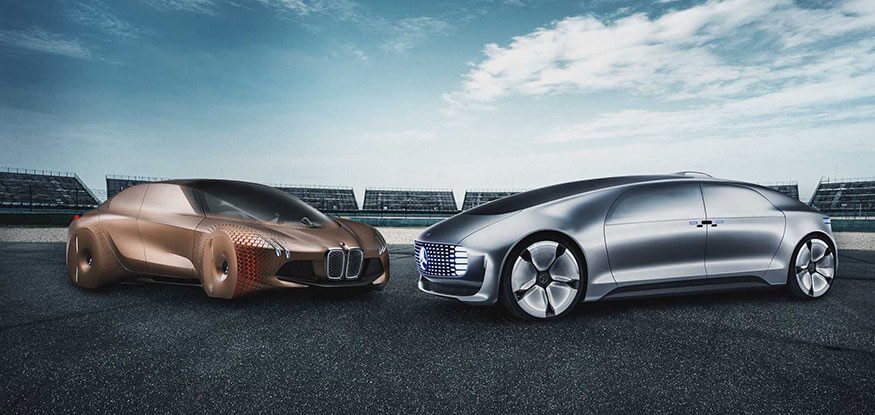German automotive industry giants BMW and Mercedes-Benz manufacturer Daimler have agreed to work together to further enhance their development and implementation of self-driving technology and the creation of electric cars.
For many years, BMW and Daimler have competed against one another in the global luxury car market were they both topped the sales charts.
On Thursday, the details of their partnership were outlined whereby both groups came to an agreement that they would work towards creating and maximizing the potential of autonomous vehicles and driver assistance systems.
Achieving levels three and four of the internationally recognized scale for automated driving will be their initial focal point. The groups do not plan to work on level 5 as of yet because it would involve the computer possessing full control over the driving of the vehicle.
Their initial aim is to further the development of the vehicles by achieving parking and driving assistance along with a limited degree of autonomy on motorways.
Daimler board member and soon to be Chief Executive, Ola Kallenius, said, "Instead of individual, stand-alone solutions, we want to develop a reliable overall system".
A week before this partnership was announced, the groups disclosed that there will be a one-billion-Euro investment towards creating a joint scheme by combining some of their apps, including carsharing apps ‘DriveNow’ and ‘ready to share’.
Combined, there are 14 apps with a total of around 60 million users. Bringing the apps together into a joint scheme will allow for users to book short-term rentals, parking spaces, electric charging stations, and taxi and chauffeur services.
Expert Stefan Bratzel from Germany’s Center for Automotive Management told AFP that such big collaborations “show how even one-time rivals see a pressing problem” within the industry, especially with gathering all the needed capital for making massive investments and attaining the expertise needed to address the future challenges that face the industry, all in the name of innovation.
Indeed, carmakers are looking to collaborate with high-tech firms like Google, mobility service providers such as Uber and in some cases, telecoms firms in order to meet the ever-changing standards of the industry.
In this new industry-wide environment, companies are “forced to cooperate,” said Bratzel, “otherwise you just can’t tackle certain questions, networking, building up ecosystems” that bind together different technologies.
Daimler has linked up with Bosch while BMW works with Intel and Fiat.
“Being open to alliances to share the burden of investments is an economic necessity,” said Bosch CEO Volkmar Denner.
On Thursday, BMW and Daimler stated that other tech companies and automotive manufacturers could be invited to collaborate with them on their self-driving scheme in the near future.
German automotive giant Volkswagen has been absent from the sudden surge in alliances within the industry.
However, it has been speculated that an alliance is in the works between BMW, VW, Daimler, Bosch and Continental.
The Wolfsburg-based giant is said to have coordinated with Aurora, a startup operated by former Google, Tesla and Uber executives.
Silicon Valley tech giants are also heavily involved in the development of autonomous vehicles as they have their own industry-wide challenges and goals that need to be met.
Waymo, Google’s self-driving project, is working alongside Fiat Chrysler and Jaguar Land Rover; while Tesla, Uber, Apple and Baidu are pursuing the technology.
In the meantime, the governments of Germany and France are looking to grow an enhance the car industry in their respective countries by supporting the emergence of European “champions”, with a battery manufacturer for electric cars on their wish lists.

